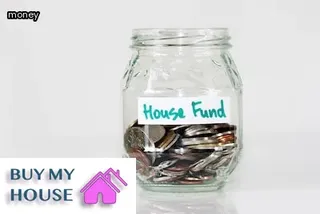Understanding the home selling process is a key part of ensuring that you receive your money quickly and easily after selling a house. It is important to fully understand all of the steps involved in the process so that you can ensure that everything goes smoothly and you get paid promptly.
The first step is to make sure that all paperwork is in order, including any relevant contracts, title transfers, and mortgage documents. Once these are completed and signed off by both parties, it's time to move on to closing the sale.
This involves collecting the payment from the buyer and transferring ownership of the property. Depending on your agreement, this may involve cash or check; however, most buyers will use an escrow account for making payments.
After completion of this process, you should receive your money within a reasonable time frame. Knowing these steps can help make sure that everything runs smoothly when selling a house and you get paid what you're owed without delays.

The closing process for sellers of a home is the process in which all of the necessary paperwork is filled out and the deal is completed. Generally, the closing process consists of several steps, beginning with the buyer's mortgage loan application and ending with the seller receiving their payment from the proceeds.
Throughout this process, it is important to understand what documents are necessary and to ensure that everything is completed correctly. During this time, both parties must sign various documents and pay any fees related to selling a home.
This can include title insurance, real estate commissions and other taxes or fees associated with selling a home. Additionally, it is important for the seller to receive an accurate accounting of all expenses so they know exactly how much money they will be receiving at closing.
Once all of these steps are complete and all paperwork has been signed, then sellers will finally receive their payment from the sale of their house and can celebrate!.
Preparing for closing day as a seller is an important step to ensure that you get paid after selling your house. It is important to have all necessary paperwork in order and to be aware of any potential delays.
Start by consulting with your real estate agent who can provide an estimated timeline for the sale process, including when you will receive payment. You should also secure the services of a title company or attorney who can help manage paperwork and answer any questions.
Additionally, make sure that you are familiar with any documents that need to be signed on closing day. Lastly, review all information prior to closing day, such as deed transfers and loan payoffs, so that all parties involved are confident that everything is accurate and ready to go.

Closing day is the final step in the process of selling a house and while it can be an exciting time, it's important to understand what to expect so that you know where you stand with your money. It's wise to check in with your lawyer or real estate agent ahead of time to make sure all documents have been properly filled out and signed.
On closing day itself, you will sign the deed releasing ownership of the property along with any other paperwork that needs final approval. This is when money will be exchanged; typically, this will happen through a wire transfer or a cashier’s check.
To ensure this transaction goes smoothly, double-check that all funds are accounted for and make sure you receive confirmation from your bank that the funds have been deposited into your account. With these steps taken care of, you can rest easy knowing that you’ve successfully sold your house and received payment for it.
When selling a house, there are several parties who will receive payment from the proceeds. Generally, the seller is paid first, then any additional funds are divided among liens and mortgages.
The seller receives the remaining amount after subtracting commissions, closing costs, and loan payoffs. It's important to understand who gets paid first and how much they receive in order to ensure that all parties involved get their fair share of the money.
Additionally, it's beneficial for sellers to work with experienced professionals who can help them navigate the process of receiving their money after a home sale. A real estate agent or attorney can provide guidance on understanding which lienholders should be paid and when, as well as helping to ensure that all payments are made in a timely manner.

Closing is the final step of selling a house, and it's when you will receive your money after all the paperwork is signed. At closing, there are several people present such as the seller, buyer, real estate agents and representatives from the title company or bank.
The buyer must bring in a cashier's check for the purchase price of the house. This will be given to the title company or bank representative.
They will review all documents and make sure everything is in order before exchanging the check with you. After that, they'll disburse funds to other parties such as liens or brokers involved in this transaction.
Finally, they will give you your payment in either cash or a check depending on how you requested it. It's important to note that you may have to wait a few days for your payment as it needs to clear and settle before it can be released to you.
After a successful house sale, it is important to understand where the money will go. Depending on the type of sale, there are several options for how and when the payment will be received.
In some cases, buyers may choose to pay in cash or use a traditional loan. If the buyer is obtaining financing through a mortgage company, the money typically goes through an escrow account with a closing attorney.
The closing attorney then disburses funds to all parties involved and ensures that all transactions are properly recorded before releasing payment to the seller. In certain circumstances, if the seller has a mortgage on their home, they must also provide proof of payoff from their lender in order for them to receive their full amount from the sale.
After all paperwork and payments have been processed, sellers can expect to receive their money anywhere from one day to two weeks after closing day.

When selling your home, there are several factors that can affect how much money you receive. The condition of the property, the real estate market in your area, and the type of sale (for example, a private sale versus an auction) all play a role in determining what you take away from the transaction.
Location is also important as it will determine the value of your home and thus how much potential buyers are willing to pay for it. Additionally, if there is competition for the house then this can drive up prices or offer more negotiation room.
Other considerations include associated costs such as commissions, fees, and taxes which will reduce your overall gain from any sale price. Finally, the timing of when you decide to sell can impact the amount you receive as prices may fluctuate over time depending on current events or seasonal trends.
All these elements should be taken into account when considering how much money you will get from selling your home.
When you sell a house, it is important to understand the tax implications of the transaction. Depending on your situation, you may be subject to both capital gains and income taxes.
If the sale of your home was for profit, you will likely be responsible for paying taxes on the gain from the sale. You should also consider if any of the proceeds from the sale are considered taxable income.
Additionally, if you’ve taken out a mortgage to purchase the property, you may also be subject to mortgage interest deductions as well as additional real estate taxes when filing your return. To ensure that you are in compliance with all applicable laws and regulations, it is recommended that you consult with a qualified professional before finalizing any transactions related to selling your home.

When selling a house, understanding title insurance is an important step in getting paid. Title insurance is an insurance policy that helps protect the buyer and seller from any issues that may arise during the sale of the home.
It covers any claims or disputes resulting from a title dispute due to errors, omissions, encumbrances, liens, fraud and forgery that could affect the validity of the title transfer. The cost of title insurance is typically split between the buyer and seller and can be used to cover legal expenses if a claim does arise.
When selling your home, it's essential to understand how title insurance works as part of the home selling process in order to ensure you receive your money after closing on the sale.
Working with a professional real estate agent when selling your home can have several benefits. One of the most important is that they will handle the process of receiving payment from the buyer after the sale closes.
An experienced agent knows how to navigate closing costs and other fees associated with selling a house, ensuring that you receive all money due to you quickly and without hassle. They will also be familiar with contracts, so you can feel secure in knowing that everything is handled correctly.
Additionally, a professional realtor understands local laws and regulations related to selling real estate, so you don't have to worry about running into any legal issues during the process. By working with an expert, it's possible to make sure your finances are taken care of efficiently and effectively while selling your home.

When it comes to selling a house, negotiating strategies can be the difference between a good return on investment and a great one. To get the most money possible from your home sale, there are several steps you should take.
First, do your research on the local real estate market and determine what price is fair for your property. Next, get multiple competing bids from potential buyers and use these to leverage an even higher price.
Additionally, consider negotiating for additional perks such as closing costs or upgrades that can add value to the deal without costing you any money upfront. Finally, make sure all of the details of the sale are documented in writing to ensure both parties are held accountable and that you receive your entire payment promptly.
Taking these measures will help ensure you maximize your return on investment when selling your house.
When selling a home, it is important to be aware of the common pitfalls that can occur during the process. To ensure you receive your money in a timely manner, make sure to review all contracts carefully and document any verbal agreements in writing.
Additionally, it is wise to do research on real estate market prices so you can accurately value your home and avoid being underpaid. If possible, use an experienced real estate attorney who can help you navigate the process and avoid potential legal issues.
Furthermore, if you are using a real estate agent, ask for references from previous clients and make sure to read all reviews before hiring them to represent you. Finally, know your rights when dealing with buyers; understanding state laws regarding property sales will help protect your interests throughout the process.

When selling a property, it is important to take legal steps to protect yourself from potential issues that could arise during the sale. This includes obtaining a good contract with your buyer, as well as reviewing all paperwork to ensure that all parties involved in the transaction are in agreement.
Additionally, having an attorney review the legal documents and advise you on any potential issues that may arise is important. It is also crucial to have a title search done on the property to confirm ownership and verify any liens or encumbrances against it.
Finally, make sure you obtain proof of payment from your buyer before transferring ownership of the property. Taking these steps can give you peace of mind throughout the process and help ensure you receive your money after selling your house.
Wet funding is an important part of the process when it comes to selling a house and receiving payment. Wet funding refers to when funds are released from the escrow account, typically after closing documents have been signed.
Typically, mortgage lenders will require wet funding before releasing the mortgage proceeds to the seller. It is essential for sellers to understand wet funding in order to ensure that they receive their money after selling a house.
Wet funding typically occurs within 24-48 hours after closing documents have been signed, however this can vary depending on the lender and other factors. Sellers should check with their lender or realtor ahead of time to ensure that all necessary steps are taken in order for them to receive their money after selling a house.

Dry funding is a process used by some real estate investors to receive the money they are due after selling a house. The term ‘dry’ is used because it does not involve any liquid assets, such as cash or stocks.
Instead, the investor will transfer ownership of their house to a third party and then receive money in the form of a promissory note. This promissory note is essentially an IOU from the buyer for the amount owed, which will be paid out over time.
Dry funding can offer benefits for both parties involved in the sale, such as allowing for quick closing times and providing more flexible repayment terms than more traditional methods of payment. It can also provide peace of mind for both buyers and sellers since the transaction is secured by a legally binding document.
As with any financial arrangement, it is important to understand all details when considering dry funding as part of your home sale transaction.
When selling a house, it's important to understand the process of getting paid. This article covers Frequently Asked Questions (FAQs) about selling your home, choosing the right real estate agent for you, and how to handle unexpected challenges before, during, and after closing.
Before deciding on a real estate agent, research their professional background and experiences in order to make an informed decision. During the process of selling your house, unexpected issues may arise; therefore it is important to be patient and remain flexible.
After closing on the sale of your home, there are typically two steps that must occur in order for you to receive your money: title transfer and disbursement. The timeline for receiving payment can vary depending on various factors, such as whether or not there are any liens against the property.
Knowing what steps need to be taken in order to receive your money will help ensure that the process goes smoothly and quickly.
When selling a house, it is important to understand how to receive your money as quickly and efficiently as possible. After closing on the sale of your home, you should have a clear understanding of when and how you will receive the funds from the sale.
Generally speaking, there are three methods for receiving money after selling a house: cashier’s check, wire transfer, or direct deposit. A cashier’s check is a traditional method for payment; however, it can take several days for the check to be prepared.
Wire transfers are an electronic form of payment that can usually be completed within one business day. Direct deposit is another electronic method that may take up to three business days before the funds become available in your account.
In some cases, sellers may choose to accept a partial payment in cash at closing and then receive the remainder via one of these methods. It is important to understand all potential options and discuss them with both your real estate agent and buyer prior to closing on the sale.

When you sell your house, the money you make from the sale will go to an escrow account. An escrow agent, who is a neutral third party, will manage this account and ensure that all proceeds from the sale are released in accordance with the terms of your contract.
After closing on the sale, the escrow agent will disburse the funds to both parties: your lender and yourself. The funds are typically transferred by wire or check and can take up to a few weeks to be deposited into your bank account.
Once you have received all of the proceeds, it is important to keep track of them and use them wisely – either for taxes or any other purpose specified in your contract. Selling a house can be a daunting process but knowing how to receive your money after selling is essential for getting paid quickly and efficiently.
When you sell a house, the money from the sale goes to many different people and places. The primary recipient of the funds is typically the seller.
However, depending on your situation and type of transaction, there may be other individuals or entities that are entitled to receive a portion of the proceeds from the sale. For instance, if you have a mortgage on your home, then the lender will get paid before any money is allocated to you.
Additionally, real estate agents may also be owed a commission based on their role in helping to facilitate the sale. Finally, closing costs such as title fees and escrow fees must also be paid out of the proceeds from the sale before you can access your money.
It's important to understand who gets paid when you sell a house so that you can properly plan for how much money will ultimately be available to you after closing.
When you sell your house, the profits are yours to keep. There are several steps that need to be taken in order to receive your money after selling a house.
Knowing these steps can help ensure you get paid quickly and efficiently when the time comes. The first step is to determine who will manage the closing process for you; this will likely be either your real estate agent or a title company.
Once you have chosen who will handle the closing, they will take care of all paperwork needed to complete the sale and collect payment from the buyer. Next, they will typically deposit your funds directly into your bank account so that you can access them as soon as possible.
Finally, it's important to understand state laws regarding taxes on home sales, as well as any other costs associated with selling a house, so that you know how much of your profits will actually be yours to keep and how much should be set aside for taxes or other fees. Following these steps when selling a house can help ensure you receive all of your profits in a timely manner.
A: Utilizing the services of a REALTOR is usually recommended when selling a real property. They can help you navigate the process and suggest strategies for getting the most out of your sale. Additionally, Bankrate.com offers financial advice and resources to help you understand the best options for receiving funds from your sale.
A: After the buyer of your home closes on the transaction, you will receive funds from the lender's escrow account. The amount of money you receive will depend on any outstanding mortgages, liens, and closing costs associated with the sale. Property taxes owed by the seller must also be paid before finalizing the transaction.

A: When you sell a house, you will typically receive the funds from the sale in the form of a cashier's check or wire transfer.
A: When you sell a house, you typically receive the proceeds from the sale in the form of equity. Your equity is usually calculated by subtracting any outstanding mortgage balance or other liens from the sale price of your home. It is recommended that you consult with a financial advisor to help you understand your credit situation and discuss available options for using your equity to access funds.
A: Advertisers and advertisements can help to make potential buyers aware of the property for sale, which in turn can increase competition between buyers and result in a higher sale price. Additionally, using advertisements to market a house can create more interested buyers, leading to a quicker sale.

A: Attorneys can be used to help manage the legal aspects of selling a home, such as drawing up contracts. Additionally, capital gains tax and transfer tax may apply to the sale, depending on your individual situation.
A: When selling a house, the money is typically received through closing costs, where the buyer pays all or most of the costs associated with transferring ownership of the property. The seller will then receive their proceeds at closing.
A: Homeowners should understand that the Real Estate Transfer Tax is typically paid by the buyer and is based on a percentage of the sale price. Additionally, it's important to ensure that all necessary repairs are made before listing the house, as this may be required during the home inspection process. Lastly, if there is any home equity involved in the sale of the house, it's important to make sure that this is properly accounted for and distributed in accordance with local laws.
A: When you sell your house, you will typically receive the proceeds from the sale through a wire transfer or check from your closing agent after all of the necessary paperwork has been completed.
A: You can receive the money from the sale of your house through a variety of methods. The quickest and most secure way to receive payment is typically via electronic transfer to your bank account or by check. If you need the funds as soon as possible, you should provide your buyer with a checkbook and email them a request for payment with instructions on how to deposit the funds. This will ensure that you get paid off quickly and securely.
A: After the sale is finalized, the proceeds from the sale are typically sent to the seller via wire transfer or check.
A: The goal for a homeowner selling their house is to receive payment in a secure manner that will protect them from wire fraud. Homeowners should consult with their real estate agent and/or attorney to discuss the safest way to receive the funds from their home sale, such as an escrow account, which provides added security.
A: After you have accepted an offer from the buyer and all other closing conditions have been met, the funds from the sale will be disbursed to you by your escrow or closing agent.
A: Typically, when selling a house For Sale By Owner (FSBO), consumers will receive the proceeds from the sale in one of two ways. The first would be to request payment in cash or by certified funds at closing. The second would be to have the buyer obtain a loan for the purchase and then receive their proceeds at closing from the title company. In this case, it is important for the seller to understand that the buyer must meet certain credit score requirements in order to qualify for financing.
A: When you sell your house, you will typically receive the money from the buyer in the form of a cashier's check or bank wire transfer. Your real estate agent can help you coordinate with the buyer to ensure that you get paid quickly and securely.
A: Caret utilizes an advanced security protocol and verifies all transactions with both bank accounts before transferring funds. This ensures that the money is transferred accurately and securely to its intended destination.
A: Once the sale is finalized, you will typically receive funds via wire transfer or by check through escrow. Depending on the agreement and the state where the house is located, you may also be able to receive cash for your home sale.
A: The amount of money received when selling a house is typically determined by an appraisal, which assesses the market value of the property.
A: When you sell your house, the proceeds will be deposited into an escrow account, which is typically managed by a title company or attorney. Once all of the conditions of the sale are met, then you will receive the funds from the escrow account.
A: Prepayment penalties should be reviewed carefully as they may affect the amount of money you receive from the sale. Integrity is key throughout the entire process to ensure all parties are being transparent and honest. A professional inspector should also be consulted to ensure that any issues with the home are identified prior to closing.
A: When you sell your house, you will be given the proceeds in dollars once all the legal documents have been signed and any due diligence has been completed to ensure that all facts are accurate and verified. If you have included furniture in the sale of your home, this will also be taken into account when calculating the amount of money you receive.
A: When you sell your house, you will typically receive payment directly from the buyer's lender through a wire transfer. It is important to ensure that this transfer is completed in a secure manner.
A: To get the most money when selling your house, you should research the local real estate market to set a competitive price, hire a real estate agent to assist with pricing and negotiations, and prepare your home for sale by making necessary repairs and updates.
A: After you sign a purchase agreement to sell your house, you must complete the closing process. This involves understanding taxes and fees related to the sale, as well as any other paperwork that must be handled before finalizing the sale. Once all of this is done, you will receive the money from the sale.